There is a whole social science perspective emerging that artificial intelligence is neither artificial nor intelligent! That and other such compelling research questions fill IIITH’s social scientist Dr. Aakansha Natani’s academic calendar.
The assistant professor at IIIT Hyderabad’s Human Science Research Center (HSRC) recently returned to campus after an invigorating four-month stint at Cambridge University’s Department of Politics and International Studies as a D C Pavate Visiting Fellow 2023 in Sidney Sussex College. A key research area identified during her Cambridge sojourn is digital sovereignty and data ownership dilemmas in the global south.
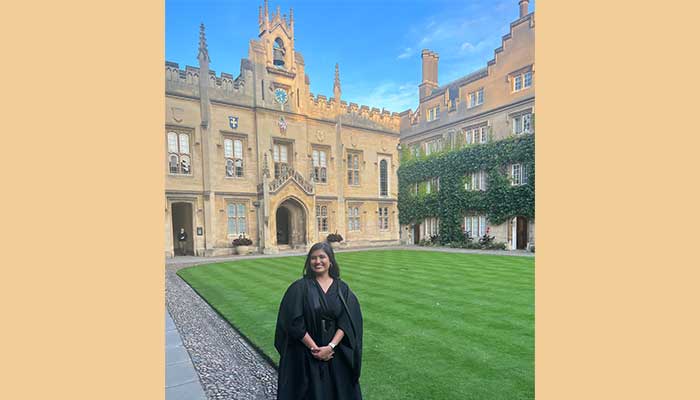
What lies beneath Data Power?
“I’m particularly interested in the digital sovereignty and data ownership dilemmas that are emerging all over the world, with the kind of data protection laws that are being introduced and the diverse approaches being taken to address various issues, through these bills”. Aakansha points out that a key area is the global power struggle between the Chinese, Americans and Europeans, over the question of data ownership, and how democracies like India and others in the Global South are placed in the debate. The focus is also on how excitement and anxieties over technological advancement are different between the developed countries and the global south. Furthermore, what are the AI driven challenges in the diverse societies and how debates would evolve, over questions of fundamental rights, liberty, equality, justice and other core political concepts.
Global south is an established term in social sciences that bands together countries of Latin America, Africa and Asia, whose scale of development is influenced to a great extent by the developed countries in the global north ie., America and Europe. It looks at the phenomenon of hegemony and how the narrative is being designed and shaped in the global north, given their control of technologies. With the rapid advancement of technologies and their impact on society, it becomes crucial to analyze the evolving issues from global south perspectives.
Ace Debater argues her way into a career
It was Aakansha’s participation in an international essay competition on ‘Representative Democracy in the Digital Era, that made her realize the scope of its study. She completed her M.Phil and Ph.D from the Centre for European Studies – School of International Studies, Jawaharlal Nehru University. “JNU changed my entire perspective on life, especially my social conditioning. It made me unlearn a lot and actually taught me how to question the answer along with answering the question”. Her Ph.D on Digital Democracy in the European Union (EU), analyzed policies and programmes of the EU and its member states, regulating the use of ICT in democratic practices and processes.
From studying Humanities to Tech-Talk in Hyderabad
“A good lecture gives me absolute joy”, proclaims Aakansha who began teaching political science at the relatively young age of 21. When her academic load permitted her, she would take on several teaching assignments at the University of Delhi colleges like Gargi College, Delhi College of Arts and Commerce, and Jesus and Mary College. She also worked as a Visiting Scholar in Leuven Centre of Global Governance Studies, KU Leuven, Belgium.
Three days after she received the much-coveted doctorate label in March 2020, the country went into lockdown. Having had a strong educational background and experience in the social sciences, she toyed with the idea of shifting to a technical institute, prompting her decision to apply to IIIT Hyderabad. “After almost a year, they emailed back, asking if I was still interested. Shifting to a science and technology center from humanities was a big leap of faith, that turned out to be the best decision. The way IIITH runs is just fantastic”, smiles the academic who now has the autonomy to design and teach the courses that she always wanted to – on Internet and democracy, AI and human rights. She is very happy to be a part of HSRC. “It’s an excellent group that has come together, not just professionally, but also personally. There is no workplace stress here, that exists by default everywhere. In the middle of the day, someone will invariably drop in for coffee. You head to the canteen and you have a place to talk and reflect, refresh and return to work and that’s very nice.”
“Now at IIIT Hyderabad, I actually get to do what I was trained for, because the specialized Center is probably the first of its kind in India that studies both digitalization of democratic processes and democratization of digital spaces, from an interdisciplinary approach”, she adds.
At the confluence of humanities and Internet-based technologies
Aakansha’s specialization is in the space, somewhere between internet and politics. “These are ever changing questions and dilemmas that are emerging but I perceive it as an epistemological break. My current focus is on Digital Public Infrastructure as well as AI driven challenges in diverse societies. The joint collaboration between three IIITH professors and Meta is of particular interest to the researcher, who is currently working with experts in human computer interactions and cognitive sciences, to study public policy concerns in metaverse-based healthcare in India. Furthermore, she is soon going to start a project on India’s data diplomacy, analyzing evolving patterns of using ‘access to 1.5 billion people’s digital footprints’ as a tool of strategic negotiations in Indian Foreign Policy.
Her Ph.D research took her to the European parliament, as a Visiting Scholar to the Leuven Centre for Global Governance Studies, Belgium where significant field work helped her to build a base. Labeled as the Brussels effect in international politics, Aakansha explains the phenomenon as the EU’s influence on different policy areas, like the AI Act and how it has global ramifications. Her Cambridge University project was on ‘Who owns data? Emerging debates on data ownership, distribution and protection in digital democracies’. “Right now, I am particularly interested in the global south perspectives in this context which I see as the missing link in the debate and my Cambridge stint has helped me to locate these fundamental research questions in the geo-political landscape”, she remarks.
Cambridge and the Global North-South conundrum
“Cambridge has an exciting schedule of events and I actually got to dine with Nobel laureates and parliamentarians of different countries. I also got to attend a number of interesting talks and discussions on my area of research. It has been very fulfilling to expand your world view, get your work reviewed by renowned scholars and strengthen your own knowledge” says Aakansha who has given talks in different centres of Cambridge and Edinburgh University. “Many in Cambridge are particularly interested in India’s digital public infrastructure”, she notes. ”Whether it is the aadhaar-based identity verification system, UPI or KYC, there are several such products and services which are being viewed with a lot of curiosity”.
In the current research landscape, when there’s a problem, science comes up with a technology based solution. “But it is equally important for social scientists to explore societal issues that these technologies create and address fundamental questions related to human rights, democracy, accessibility and inclusivity within the digital society and political systems”, she cautions.
Khamma Ghani says the scholar
Aakansha got to study in different cities across Rajasthan, thanks to her father’s transferable job with the Rajasthan government. She pegs herself as a jack of all traders and her popularity as a debater, made her the natural choice as anchor for school and college events. A State board merit-lister at school, she has won awards at the national level in debates and essay competitions.
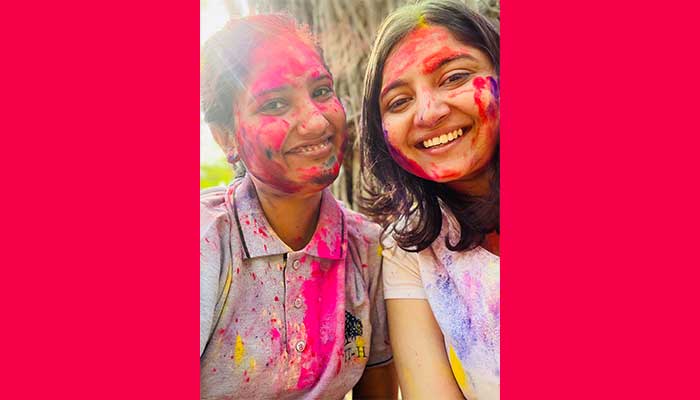
“Because of my book-heavy days, I follow newspapers and magazines to keep abreast of news and policies in the international arena”, reports Aakansha who prefers historical and political documentaries on OTT platforms.
“I love travelling; not the usual touristy trappings of restaurant-shopping hubs but to offbeat places where I love listening to strangers, narrating their stories. I enjoy historical walking tours, sometimes exploring the city again and again with different guides, who point out the relevance of a particular building or what happened on a street once upon a time that changed the trajectory of the city. I explore any place from the historical lens, and of course the food and culture in the villages and countryside”, says the street food lover with diplomas in French and German languages. “I listen to their folk songs that tell stories that reflect the fears, psyche and challenges they faced for survival and the little things they celebrated in the process.”
Cosmopolitan campus that comes alive
Aakansha, being a newcomer to Dakkhani hospitality was immediately captivated by the “IIITH campus where you get to experience diverse cultures, especially around festivals. You are part of a community with a very cosmopolitan vibe, with scholars who have returned after living around the world”, she adds.
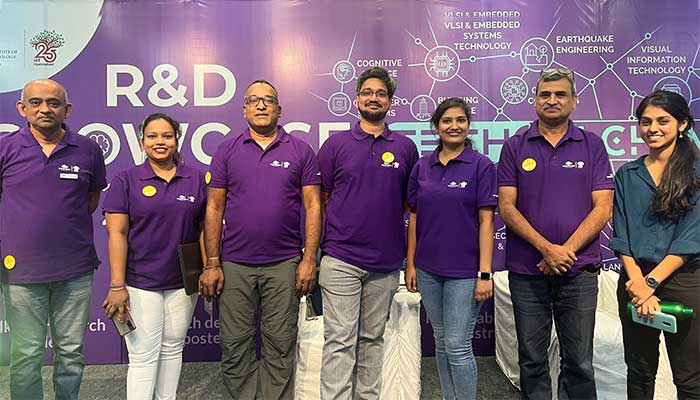
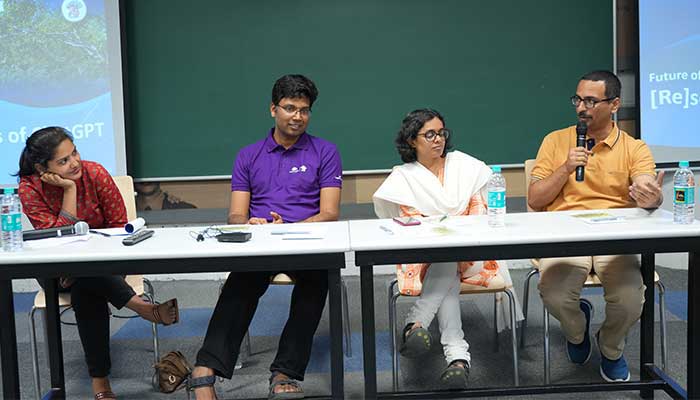
“Maintaining a work life balance is not a problem for me in IIITH. I think when you start enjoying what you do, in a safe campus with excellent amenities, your life becomes more fulfilling”. Prepping for the R&D showcase and the Silver Jubilee celebrations were bonding experiences, that involved several hours of planning and executing events, over memorable meals. In her interactive classroom, students get to understand and discuss the social ramifications of work that comes out of their research labs. Appreciative emails from students are very gratifying and inspiring. With her new courses offered in IIITH and the successful completion of her research project in the University of Cambridge, she does admit that 2023 has been a highly fulfilling year.
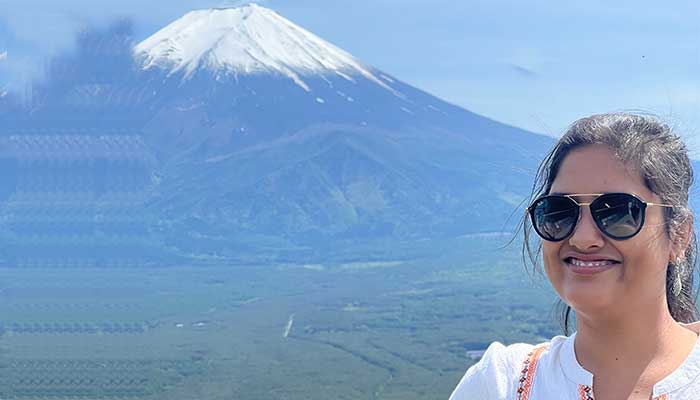
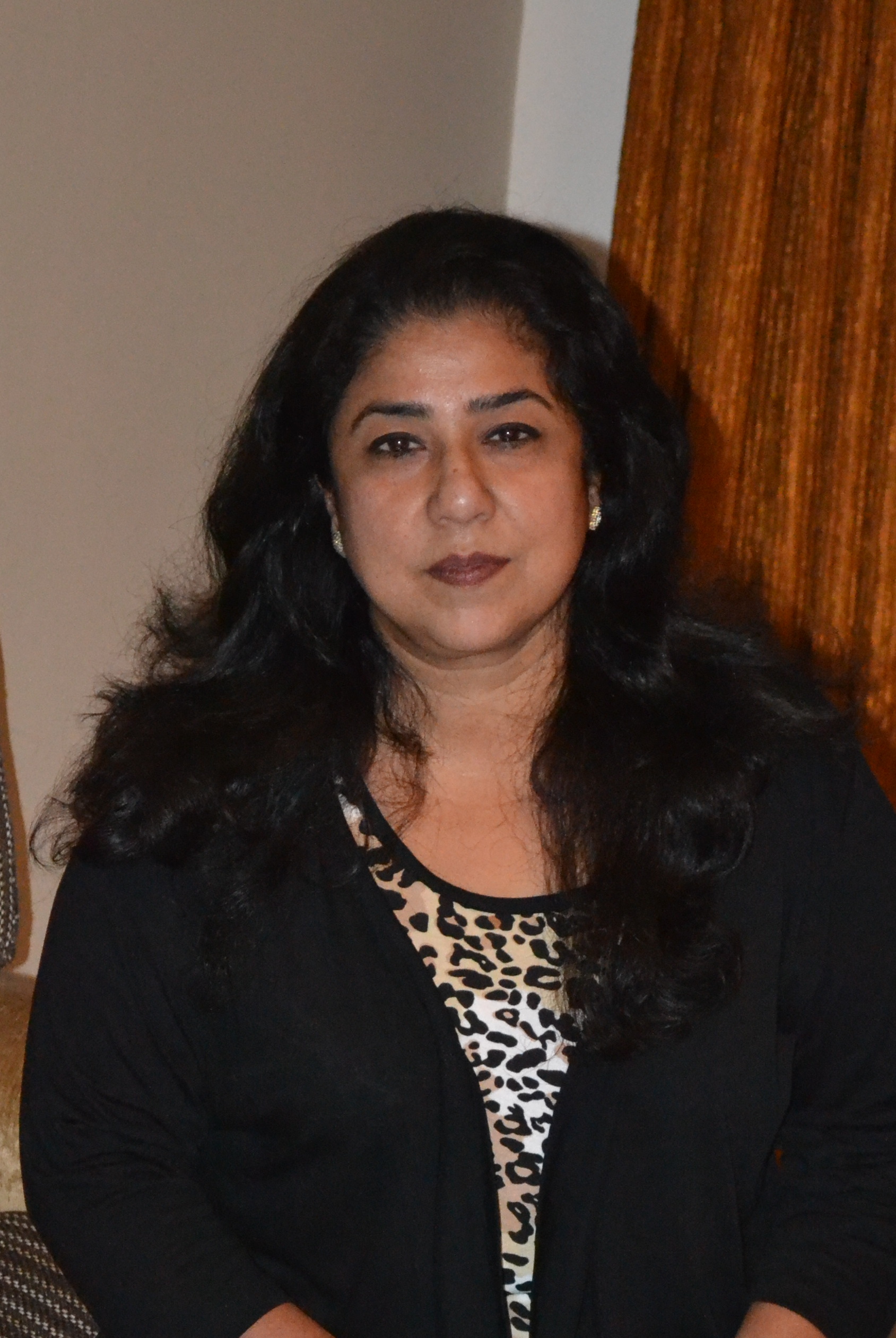


Next post